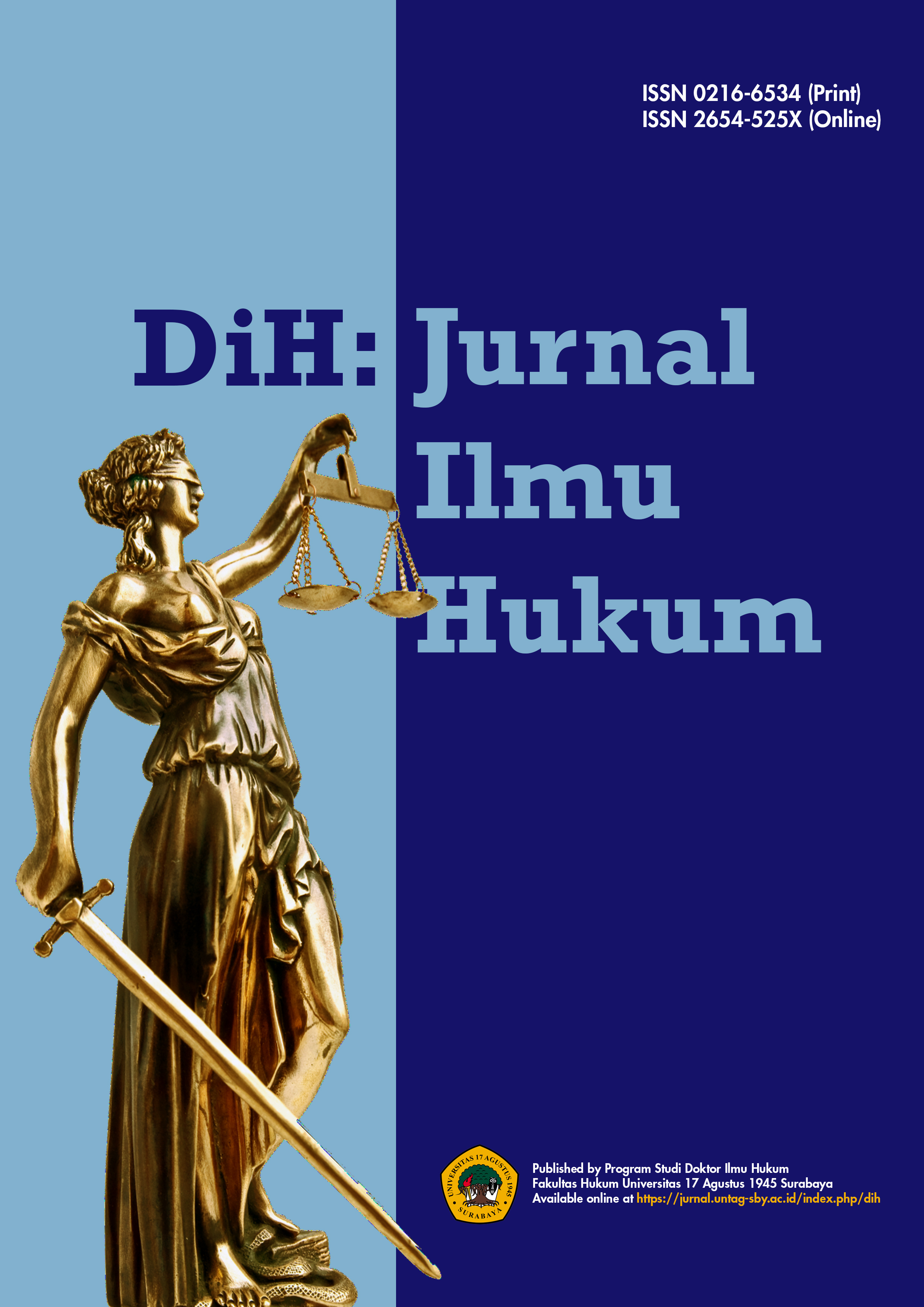The Legal Analysis Of The Nomination Of Former Convicts Corruptions In Convinient Elections In 2020
Abstract
This research departs from the 2020 Boven Digoel Regional Head Election, where the regional head had committed criminal acts of corruption while serving as regional head for two periods, namely 2005-2010 and 2010-2013. Furthermore, when he was running again as regional head in 2020, he was a former convict. This corruption was disqualified by the constitutional court after he was re-elected as regional head because he did not meet the requirements of Per.PKPU No.1/2020. This research focuses on Per.PKPU No.1/2020. The type of research carried out by researchers uses normative legal research with conceptual, case and statutory approaches. The results of the research confirm that based on Per.PKPU No.1/2020 there is an exception which means that former corruption convicts can run for office after a five year gap period after being released from serving a criminal period in prison and former corruption convicts in Boven Digoel have fulfilled this exception. Based on the principles of popular sovereignty and democracy as regulated in Article 28C (2) UUD NRI 1945, the second amendment, former corruption convicts can participate in the state by nominating themselves as regional heads. This is reaffirmed in Article 1 (2) UUD NRI 1945. Based on Article 43 Law No.39/1999, former corruption convicts have the right to become regional leaders by nominating themselves as regional heads. Based on Article 28 (2) UUD NRI 1945, to fulfill justice, former corruption convicts are given the opportunity to become regional heads by fulfilling their human rights, such as the right to nominate themselves after a five-year hiatus from being a corruption convict.
Downloads
Authors who publish with DiH: Jurnal Ilmu Hukum agree to the following terms:
- Authors transfer the copyright and grant the journal right of first publication with the work simultaneously licensed under a Creative Commons Attribution-ShareAlike 4.0 International License.. that allows others to share the work with an acknowledgement of the work's authorship and initial publication in this journal.
- Authors are able to enter into separate, additional contractual arrangements for the non-exclusive distribution of the journal's published version of the work (e.g., post it to an institutional repository or publish it in a book), with an acknowledgement of its initial publication in this journal.
- Authors are permitted and encouraged to post their work online (e.g., in institutional repositories or on their website) prior to and during the submission process, as it can lead to productive exchanges, as well as earlier and greater citation of published work (See The Effect of Open Access)






